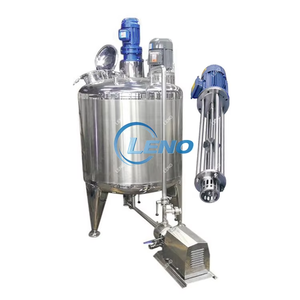
All categories
Featured selections
Trade Assurance
Buyer Central
Help Center
Get the app
Become a supplier

(8 products available)














































Many types of mixers are available for mixing concrete. Mixer trucks are essential for moving the concrete from the location of production to the final site where it will be laid. Then there are the stationary or fixed mixer plants that produce the concrete. The mixer (or beaters) within the plant then distributes the concrete.
A volumetric mixer craigslist or mixer truck mixes precise ingredients on-site for high-quality, consistent concrete that meets specific project requirements. Also known as a concrete or mobile batching truck, this vehicle serves as a mobile concrete plant. It functions by autonomously measuring and mixing raw ingredients, such as water, sand, gravel, cement, and admixtures, to create fresh concrete that is functional when it arrives at the job site.
Because the entire process takes place within the truck, there is also no worry about the mix's integrity being clouded by environmental factors. The mixing order stays as it should, and the concrete arrives at the site in an ideal state for use.
These trucks have large storage compartments that hold separate materials. One major benefit of them is that they are often able to produce several types of concrete at once, with different admixture and aggregate compartments. They can also easily change the water-to-cement ratios in their mixture, which is ideal for customized client requirements.
Drivers operate volumetric mixers in the same manner as concrete trucks. They go to the location where the concrete is needed and get the mixing done right there. As the ingredients are mixed on-site, there is also no concrete waste from the production facility that needs to be accounted for or returned to the supplying company.
This is a significant difference from the work of a standard concrete mixer, which has fixed ratios set before it leaves the production site and cannot change them on the way to the laying site. In a standard setup, excess concrete must be returned to the facility, and in some cases, the customer may need to lay more to have enough quantity of the material.
Volumetric mixers are also referred to as mobile mixers, mobile batchers, or on-demand mobile mixers. Usually, they will have one to three separate hoppers to store dry aggregate and a water tank. The trucks have digital controls to adjust the amounts of material being taken to ensure that the exact amount is created. Sometimes, extra chemical additives may be inserted into the mixture to change its characteristics or to enable it to set or cure more quickly or slowly. The entire process is scientifically and responsibly managed by trained personnel so that the finished product meets regulatory and customized requirements.
Volumetric mixers are used in different construction industries and sectors. Here are some common applications of truck mixers:
Production needs analysis
Estimating business requirements are crucial when selecting a volumetric mixer. Customers should consider the quantity and frequency of concrete production, as well as the sizes and types of mixers they need. Selecting a mixer that meets production needs can enhance workflow efficiency and satisfy customer demands.
Mixers with different capacities
For businesses, it's important to select the appropriate mixer capacity based on factors such as project size, development speed, and daily usage. Choosing a mixer with the right capacity can effectively meet the demands of concrete production while optimizing resource utilization.
Quality and stability of equipment
When selecting a volumetric mixer, it's essential to consider the equipment's quality and stability. Choosing high-quality, stable equipment can ensure smooth operation, minimize downtime, and reduce maintenance costs, thereby enhancing overall productivity.
Function and practicality
Investing in a volumetric mixer with multiple functions and high practicality can provide businesses with more operational flexibility and solutions to meet various project needs.
Easy-to-use operation and control system
When selecting a volumetric mixer, it's crucial to consider the user-friendly operation and control system. Choosing a mixer with an intuitive operating system can simplify the operational process, enhance team productivity, and reduce training costs.
Transportation and storage
Considering the transportation and storage of the volumetric mixer is essential for businesses to facilitate the efficient movement and proper storage of equipment, thereby reducing logistics costs and ensuring the timely availability of materials.
Q1: What are the latest trends in concrete mixers on Craigslist?
A1: The trending concrete mixers are the smart ones; such mixers use the Internet of Things (IoT) to give reports on concrete quality, machine health, mixer utilization, and maintenance needs. The volumetric cement mixer truck trend is moving toward environmentally sustainable practices. The mixers are being made to use less fuel, and some have fuel-efficient engines. Some smart mixers reduce carbon footprints and give more concrete per cubic foot. Some have telematics that allow for remote monitoring and fleet management, thereby boosting efficiency on the worksite.
Q2: What is the difference between a volumetric and a batch mixer?
A2: A batch mixer is usually made for large amounts of mixing, whereas a volumetric mixer is suitable for smaller continuous mixing of materials. The latter produces mixed material at a constant rate and is versatile for different types of mixtures.
Q3: What are the specifications in demand for concrete mixers on volume mixer Craigslist?
A3: Mixers with mobile or portable designs are in high demand. So are the machines with large mixing capacities and fast mixing speeds. Those that are designed to handle various materials and produce different types of mixtures are also in demand. Some have programmable settings to allow for precise control over the mixing process. Others have advanced features such as automatic feeding systems and integrated weighing mechanisms. The smart concrete mixer with remote monitoring and fleet management capabilities are sought-after machines.